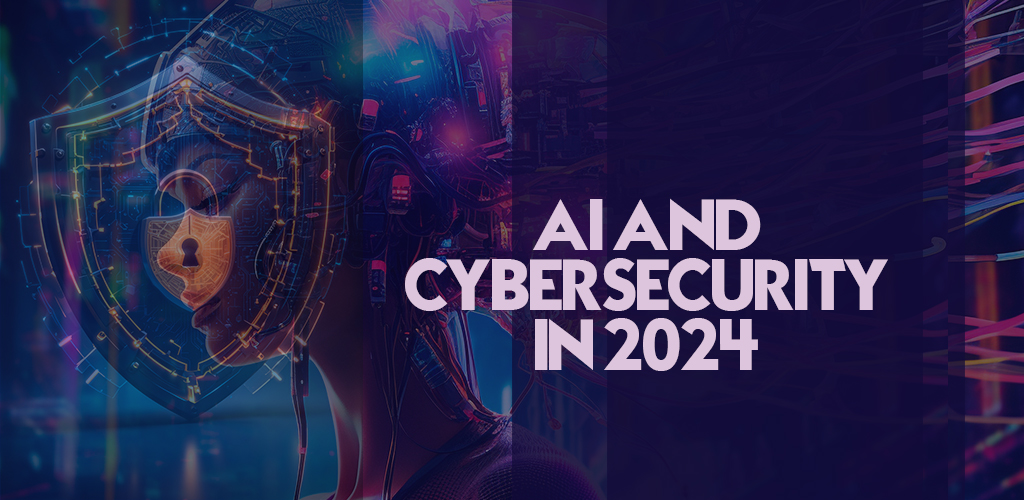The digital landscape is rapidly evolving, and with it comes the increasing threat of cyberattacks. In this age of technology, safeguarding sensitive data is more crucial than ever. One of the most promising solutions to these growing challenges is the integration of artificial intelligence (AI) and cybersecurity. AI not only helps in detecting and mitigating threats in real-time but also brings a proactive approach to protecting data.
In this article, we’ll explore how AI is transforming the field of cybersecurity, the importance of protecting data with artificial intelligence, and how businesses can leverage AI-driven tools to secure their systems.
The Role of AI in Cybersecurity
As cyber threats become more sophisticated, traditional methods of protecting data are becoming outdated. This is where AI in cybersecurity steps in. AI-powered tools can analyze vast amounts of data at unprecedented speeds, identifying anomalies that might go unnoticed by human analysts. This allows organizations to respond to potential threats faster, minimizing damage.
Artificial intelligence enhances cybersecurity by:
- Real-time threat detection: AI can monitor network traffic and detect unusual patterns, often predicting an attack before it happens.
- Automated responses: AI can take immediate actions, such as isolating affected systems or blocking unauthorized access, without the need for human intervention.
- Predictive analysis: By analyzing historical data, AI can forecast potential vulnerabilities and suggest ways to fortify security measures.

How AI Protects Data in the Modern Era
The integration of AI in data protection offers an advanced layer of security, making it harder for cybercriminals to penetrate systems. With the rise of data breaches and ransomware attacks, protecting data with AI has become a priority for businesses worldwide.
AI-driven cybersecurity tools utilize machine learning algorithms to:
- Detect insider threats: AI can monitor internal activities and detect unusual behavior from employees or devices, reducing the risk of insider threats.
- Enhance encryption techniques: AI helps in developing stronger encryption methods that are resistant to modern decryption techniques used by hackers.
- Prevent phishing attacks: AI can analyze email content, URLs, and user behavior to identify phishing attempts and prevent users from falling victim to these scams.
Challenges of AI in Cybersecurity
While the benefits of AI in cybersecurity are significant, there are also challenges. Hackers are increasingly adopting AI technologies themselves, creating a new wave of AI-driven cyberattacks. These attacks are more adaptive, learning from previous failures to become more effective over time.
Other challenges include:
- False positives: Although AI is powerful, it’s not foolproof. Sometimes, AI may flag legitimate activities as threats, causing unnecessary disruptions.
- Dependency on data quality: The accuracy of AI in detecting and preventing threats relies heavily on the quality and quantity of data it analyzes. If the data fed into AI systems is incomplete or biased, it can lead to incorrect predictions.
The Future of AI and Cybersecurity
As both AI and cyber threats evolve, the relationship between AI and cybersecurity will only become more intertwined. The future will likely see more sophisticated AI systems that can autonomously detect, respond to, and even prevent cyberattacks without human involvement.
Businesses looking to stay ahead of the curve should invest in AI-driven cybersecurity solutions that not only protect their data but also enhance their overall security posture. With artificial intelligence constantly learning and adapting, it offers a more robust defense against emerging threats.
How Businesses Can Leverage AI for Data Protection
For businesses aiming to enhance their cybersecurity strategies, implementing AI-powered tools is a smart move. Here are a few ways companies can leverage AI to protect their data:
- Invest in AI-based security platforms: These platforms offer comprehensive threat detection, monitoring, and response systems.
- Automate routine tasks: Use AI to handle repetitive security tasks such as log analysis, freeing up human resources to focus on more complex issues.
- Integrate AI with existing cybersecurity tools: AI can complement traditional firewalls and antivirus software, providing an additional layer of security.
AI's Impact on the Cybersecurity Job Market
As artificial intelligence in cybersecurity becomes more widespread, the demand for cybersecurity professionals with expertise in AI and machine learning is growing. This shift is creating new opportunities in the industry, with a focus on developing, managing, and optimizing AI-driven security solutions.
The Future of Protecting Data with AI
AI and cybersecurity are evolving hand in hand to combat the increasing complexity of cyber threats. By integrating AI into data protection strategies, businesses can gain a proactive edge in defending against both known and unknown attacks. As the technology continues to advance, artificial intelligence will play an even more critical role in securing sensitive information and ensuring the safety of our digital world.




